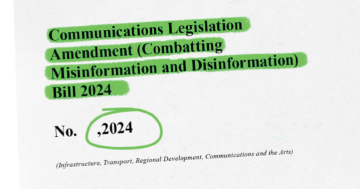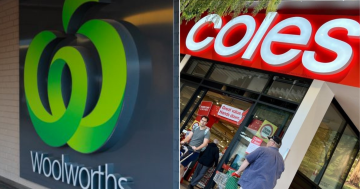Tess Bennett* says that according to a new study, more than 90 per cent of Australians don’t fully understand how digital platforms collect and use their personal data.

Photo: Panumas Nikhomkhai
More than 90 per cent of Australians don’t know how popular apps use or share their data, according to new research.
The findings come as the Australian Competition and Consumer Commission (ACCC) begins its inquiry into how digital platforms collect and use consumer data and whether consumers are adequately informed of those practices.
According to a new study from Roy Morgan research, only 5 to 10 per cent of Australians believe they “fully understand” how companies such as Apple, Twitter, Facebook, Snapchat and Google “use and/or share their personal data”.
The research is based on interviews with a representative sample of 967 Australians and was conducted in conjunction with publisher Crikey’s investigative series named “Prying Eyes”.
Apple users were the most in the dark, with 94.6 per cent of Australians using Apple apps either “not sure” or only “somewhat understanding” how the consumer electronics giant uses or shares their personal data.
An overwhelming majority of social media users are “not sure” or only “somewhat understand” how their data is used by Twitter (94.3 per cent), Instagram (94 per cent), Snapchat (93.7 per cent), Messenger (92.8 per cent), Google (91.9 per cent) and Facebook (90.9 per cent).
Generic “Other” apps fare even worse, with 95.8 per cent of Australians who use these “not sure” or only “somewhat understanding” how these other apps use or share their personal data.
Attitudes to targeted advertising
The findings follow research released earlier this month that 90 per cent of Australians say it is unacceptable (either somewhat or very unacceptable) for companies to collect personal financial data, to scrape the contents of messages or emails, or to collect health and medical data for the purpose of tailoring ads and offers to consumers.
That figure is a concern for social media companies whose business models depend on their ability to target ads to consumers based upon the huge amounts of data they collect on their users, argues Roy Morgan CEO, Michele Levine.
“Clearly there is a significant ‘disconnect’ here between the rights of consumers to expect a certain degree of privacy with regards to their personal information and the business models of social media companies that rely on stockpiling data on consumers to sell advertising,” Levine said.
Digital platform inquiry
Levine noted that data privacy has been “running hot” since the Facebook–Cambridge Analytica story broke in March.
It has also now attracted the attention of local regulators.
As well as examining Google and Facebook’s dominance in the online advertising market, the ACCC inquiry into digital platforms is considering how internet giants collect and use the data of consumers, and whether consumers are adequately informed of those practices.
The inquiry will consider whether consumers are providing informed consent when they agree to conditions set by digital platforms and if the value exchange between consumer and platform is fair.
“As we set out in an issues paper released on 26 February 2018, the inquiry will consider the impact of information asymmetry between digital platforms and consumers,” an ACCC spokesperson said.
“This issue is important.”
“While consumers don’t pay a fee to access the services of digital platforms, they do provide platforms with access to their personal data, which the platforms in turn monetise through targeted advertising.”
“This is the platforms’ business model.
The ACCC will submit a preliminary report by 3 December, followed by a final report in June 2019.
Possible outcomes include recommendations to the Government and enforceable actions to redress any behaviour that is causing consumer harm.
The competition watchdog said it is hoping the process will lead to increased transparency.
“The inquiry is already generating increased awareness about some of the ways digital platforms monetise information they collect about consumers, and will ultimately provide greater transparency around these practices,” the spokesperson said.
* Tess Bennett is the Editor of Which-50 in Sydney. She tweets at @TessBennett.
This article first appeared at which-50.com.











